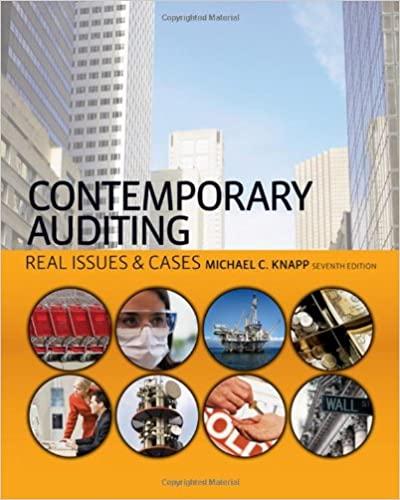Question
5. The purpose of the notes to the financial statements is to: a. Explain any resources and obligations not recognised in the Statement of Financial
5. The purpose of the notes to the financial statements is to: a. Explain any resources and obligations not recognised in the Statement of Financial Position. b. Provide information meeting the disclosure requirements under national laws or regulations. c. Disclose risks and uncertainties affecting the entity. d. All of the above.
6. An event that gives rise to a present obligation, but which cannot be measured with sufficient reliability is an example of a: a. liability. b. accrual. c. provision. d. contingent liability.
7. The following information relates to Buss Ltd for the year ended 30 June 2016. Accounting profit before income tax (after all expenses $300,000 have been included) Fines and penalties (not tax deductible) $20,000 Depreciation of plant (accounting) $40,000 Depreciation of plant (tax) $100,000 Long-service leave expense (not a tax deduction until $8,000 the leave is paid) Income tax rate 30% On the basis of this information the current tax liability is: a. $74,400 b. $78,000 c. $80,400 d. $99,600
8. Which of the following is NOT a feature of intangibles that differentiates them from other assets? a. They are largely knowledge based assets. b. Many are not separable items. c. They often do not have well-defined property rights. d. None of the above, i.e. they are all features of intangible assets.
9. Mark Ltd determined its profit attributable to ordinary shareholders for the reporting period ended 30 June 2016 as $720 000. The number of ordinary shares on issue up to 31 October 2015 was 50 000. Mark Ltd announced a two-for-one bonus issue of shares effective for each ordinary share outstanding at 31 October 2015. Basic earnings per share at 30 June 2016 is: a. $4.80. b. $6.17. c. $7.20. d. $9.60.
10. The bonus issue of shares has the following impact on the equity of a company: a. total equity increases. b. total equity decreases. c. one equity account increases and another equity account decreases by an equal amount. d. only the amount of issued share capital changes.
Step by Step Solution
There are 3 Steps involved in it
Step: 1

Get Instant Access to Expert-Tailored Solutions
See step-by-step solutions with expert insights and AI powered tools for academic success
Step: 2

Step: 3

Ace Your Homework with AI
Get the answers you need in no time with our AI-driven, step-by-step assistance
Get Started


